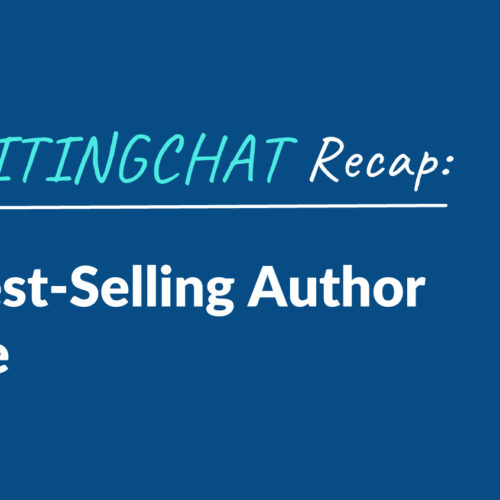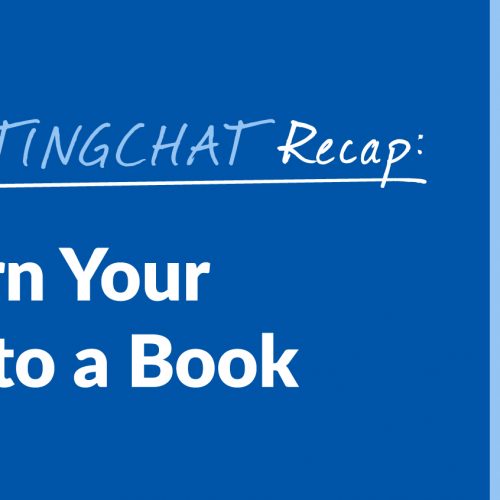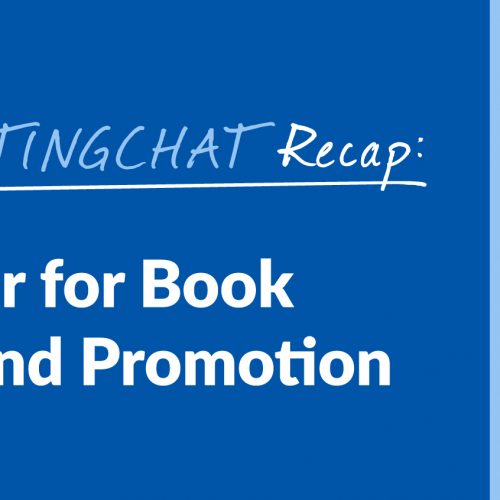#ContentWritingChat Recap: Becoming a Best-Selling Author in a Digital Age with Kristin Smedley
Are you an author or thinking about writing your very first book? If so, there’s a good chance that you aspire to become a best-selling author! You want to get your book in the hands of tons of people around the world. That’s the dream when you’re a writer, isn’t it? Well, we wanted to get some tips on how to do just that, so we invited a best-selling author to guest host our Twitter chat, #ContentWritingChat, and share her expertise! #ContentWritingChat Recap: Becoming a Best-Selling Author in a Digital Age with Kristin Smedley Welcome to #ContentWritingChat! We’re excited to have you with us for another amazing chat!@KristinSmedley is our guest host and she’s joining to share some tips on becoming a best-selling author! pic.twitter.com/69RXLc6fBv — Express Writers | Your Content Writing Team (@ExpWriters) April 7, 2020 Our guest host for this month’s chat was Kristin Smedley. Kristin is a CEO, a TEDx speaker, and a best-selling author. The Kindle edition of her book, Thriving Blind, debuted as a #1 New Release and a #2 Best Seller on Amazon. And the paperback version debuted as a #1 New Release as well! Q1: Q1: Why should people consider becoming an author in 2020? And how do you know if writing a book is a great path for you to take? If you’ve been on the fence about writing a book this year, let us convince you! Our chat participants shared the benefits of becoming an author and it’s sure to leave you feeling motivated to write! A1: Reason #1: A book is a great way to move up the food chain & be the leader in your industry. #ContentWritingChat — Kristin Smedley Resilence Rockstar (@KristinSmedley) April 7, 2020 A1: Reason #2: A book is a great way to serve your audience. People search Google for info, however how many of you bought a book to dive fully into a topic? #ContentWritingChat — Kristin Smedley Resilence Rockstar (@KristinSmedley) April 7, 2020 Kristin feels a book is a great way position yourself as a leader in your industry. It’s also a fantastic way to serve your audience and provide value to them. She also went on to share that books can provide content for your social media platforms, your blog, and more since they can be repurposed into quotes, chapter summaries, and other options. And of course, writing a book can definitely add some cash to your bank account, which is always a plus. Kristin mentioned that it might not be a huge revenue stream, but every little bit counts! Q1: Why be an author in 2020? A1: In short, it’s the BEST kind of content you can create if your goal is to craft a long-lasting presence that holds ROI and grows over time. It’s a HELL of a lot of work… But totally worth it! ⬇️Me with my book babies #ContentWritingChat pic.twitter.com/nemePWiCuw — Julia McCoy | Stay safe. Stay home. #COVID19 (@JuliaEMcCoy) April 7, 2020 The resident author here at Express Writers, our CEO Julia McCoy, said that writing a book is the best kind of content you can create if you want to create a long-lasting presence. You can see her with all three of her book babies in the photos above! A1: I always tell clients they shouldn’t write a book to make $ – they should write a book to open other doors (speaking gigs) and to build their thought leadership. #ContentWritingChat — Michelle Garrett (@PRisUs) April 7, 2020 A book can lead to many amazing opportunities, as Michelle mentioned in her tweet. If you’re looking to get into public speaking, starting with writing a book could be a huge help to get your career as a speaker off the ground. A1: Because everyone has a story to tell especially right now. I would examine what I want to say and if there’s anything new I can bring to the market. If so, I’ll write the book. #ContentWritingChat https://t.co/TCBwVzcbSs — Carlarjenkins (@carlarjenkins) April 7, 2020 Carla feels that everyone has a story to tell. So, the question is, are you ready to tell yours? She suggests examining the market and seeing if there’s anything new you could add through creating a book of your own. Q2: Once you’ve decided to write a book, should you consider self-publishing? What are the pros of doing it on your own? When publishing a book, you can really go one of two ways. And when it comes to self-publishing, it’s certainly increased in popularity over the years. It’s made it even easier for people around the world to become authors. But before you go all in, there are some things you should keep in mind: A2: I self-published my first book, #ThrivingBlind, because I wanted to see where the problems are in getting #braille copies published for #blind readers. #ContentWritingChat — Kristin Smedley Resilence Rockstar (@KristinSmedley) April 7, 2020 A2: I am self publishing my next 2 books because the process is fairly easy, I have a big network, & I am good at marketing. #ContentWritingChat — Kristin Smedley Resilence Rockstar (@KristinSmedley) April 7, 2020 Kristin self-published her first book, Thriving Blind. Doing so allowed her to see first-hand the difficulties in getting braille books for blind readers. She even plans to self-publish her next two books because she feels the process is fairly easy and she’s confident in her marketing skills. Being able to market your own book is crucial if you want to become a best-selling author through self-publishing. A2: Self-publishing gives you all the freedom you want in terms of content, cover image, everything! #ContentWritingChat — Kristin Smedley Resilence Rockstar (@KristinSmedley) April 7, 2020 Self-publishing is certainly for those who want all the freedom! A2: I think self publishing gives you more freedom to make decisions that make the most sense for you and your book. From what I’ve seen there’s more leg work with self publishing, but the book is yours from start-to-finish. #contentwritingchat — Maria Marchewka … Read more


